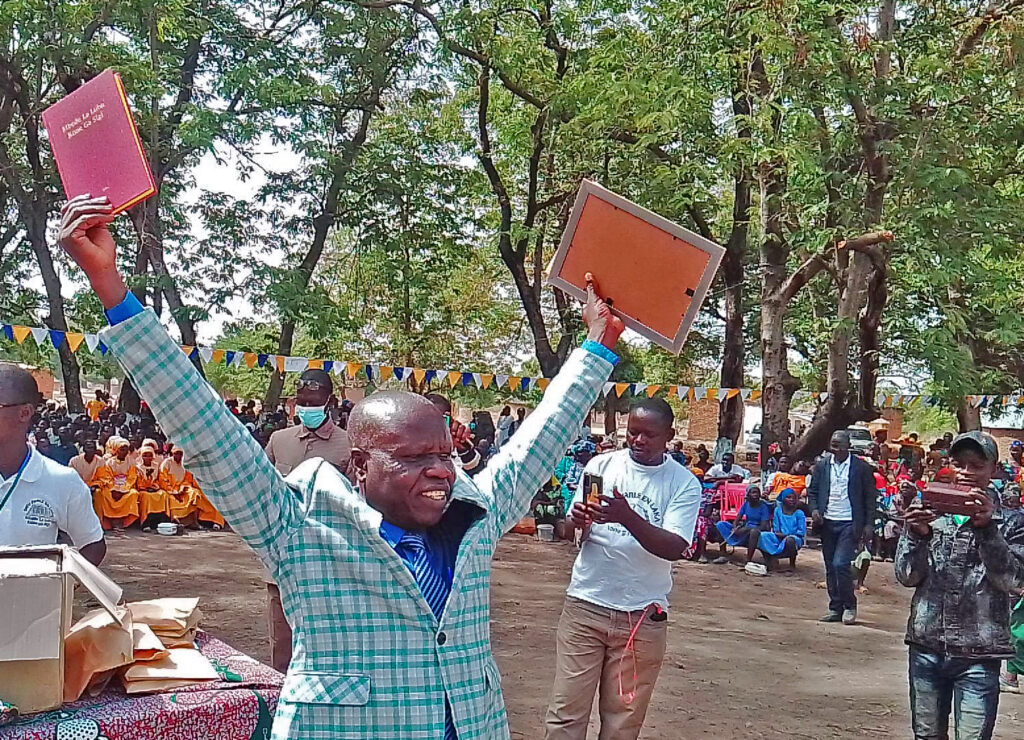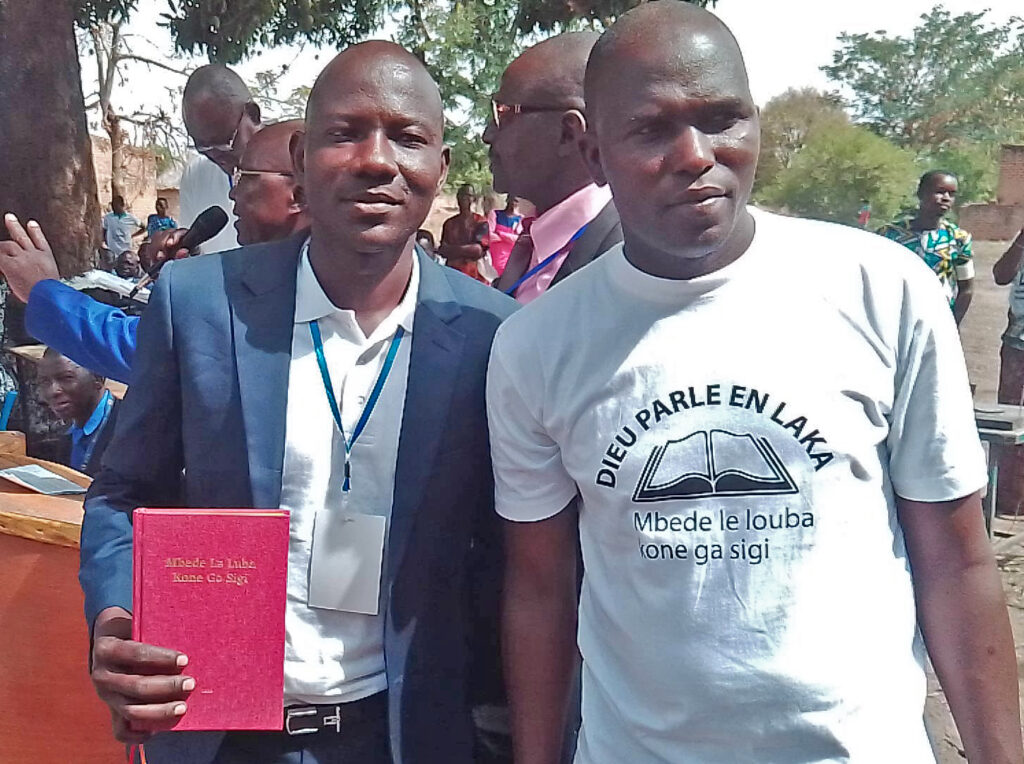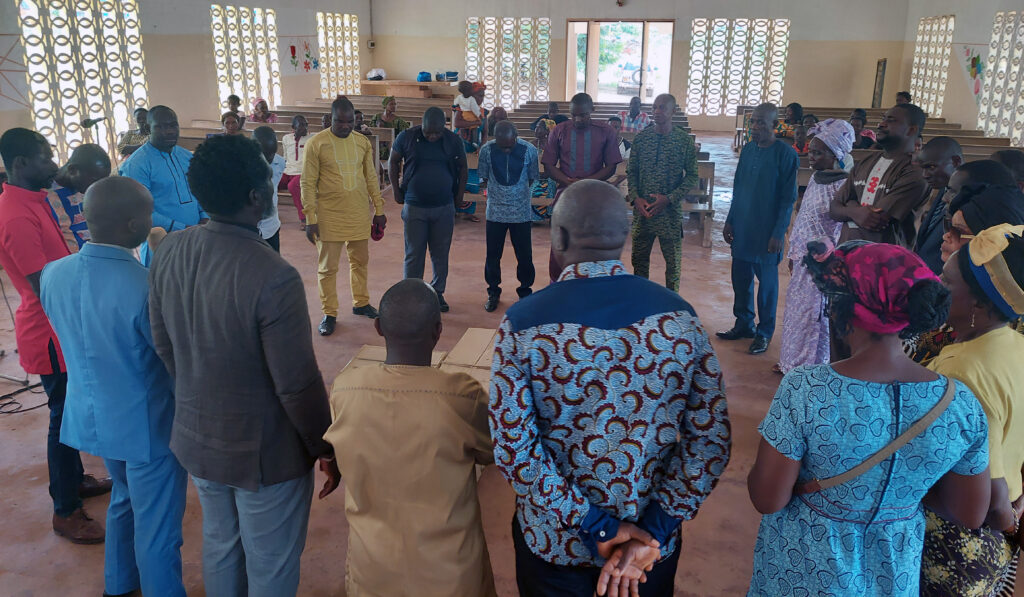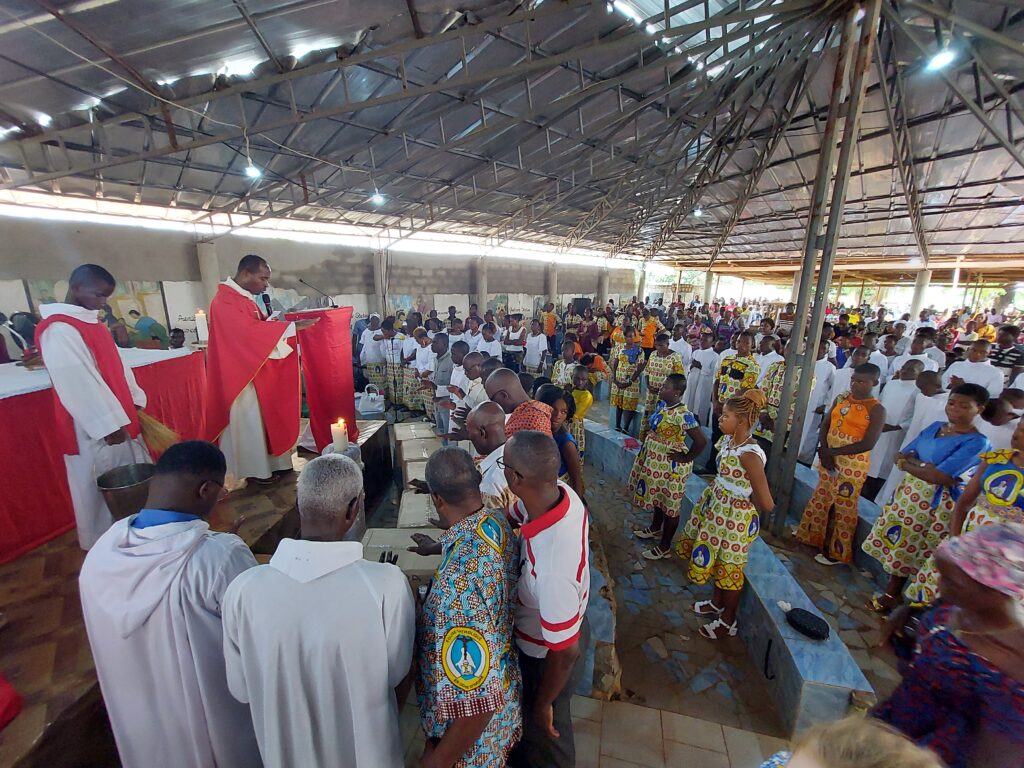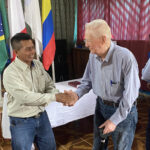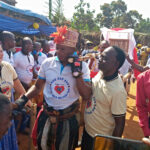River Safety: A Reality in South American Missions
Missionaries in the Amazon region risk their lives using dangerous waterways to forge a path to communities where rebel groups roam.
But just as God’s goodness has caused some rebels to respect Christians, his provision is making those very rivers a safer means of travel for his missionaries and indigenous communities.
James*, who works in missions construction/safety in South America, is partnering with JAARS to bring crucial water safety training to these waterways. He and his wife, Andrea*, a Bible translator, use the Amazon region’s rivers to reach indigenous communities where they can create relationships and translate Bibles into their languages.
The Need for Water Safety Knowledge

Missionaries like James and Andrea depend on wooden canoes that are often filled past capacity. Up to thirty people looking to travel to a community or a church might board one canoe.
As James and Andrea row, they’ll hear their guide point out places where passengers have drowned. They have no way to call someone or signal in an emergency. Still, with the untamed terrain of the rainforest, these rivers are often the safest way to travel.
James and Andrea recently spent several weeks at the JAARS Base receiving water safety training with JAARS Land and Sea Operations. During the training, conducted in a controlled environment, they responded to crises like capsizing or overboard passengers.
Now, they plan to share that knowledge with missionaries and indigenous groups.
“Communities that still need Bible translations are very remote,” said James. “JAARS knows all about that. What would you do if something happened where you had to survive? I think all of that training is very relevant. You can save someone’s life.”
One of James’ friends has lived in the Amazon region for 20 years with his wife and children. There, he plants churches and transports teams of missionaries for construction projects. He travels in a long wooden canoe that’s powered only by an outboard motor on the back. The canoe often overflows with people.
Having the equipment and training to rescue an overboard passenger could mean the difference between life and death for one of God’s children.
The Approach
For many indigenous groups in the Amazon region, water safety gear is new, making water safety an unfamiliar concept.

While safety equipment is a rare sight, areas in the river where people have died are not.
Providing these communities with unfamiliar life jackets isn’t enough. Asking them to trust a vest to keep them afloat is like inviting someone into a “trust fall” with strangers.
“They’ve never experienced wearing one and how it makes them feel in the water,” said James. “In reality, it’s a life preserver, a floatation device, and it could help them tremendously if something happened.”
To build trust in life jackets and foreign advice, these communities need trainers willing and able to show these tools’ value.
God has already used JAARS to provide water safety training in places like Papua New Guinea for mission workers and indigenous communities. James and Andrea hope to expand this training’s reach in South America.
Join The Mission
James and Andrea know God led them to JAARS for a reason.
“I think it’s wonderful to be able to use these things that many of us look at as hobbies… [like] playing around with four-wheel drive vehicles, motorcycles, boats [for God’s kingdom],” said James. “I gave up all those things to follow the call of God, and now the Lord is saying, ‘Well, the reason why you liked those things is because I want you to use them to continue the Great Commission.’”
We need many technical skills to cover the last mile of missions in these remote places dominated by rainforests or mountains. Discover how your skill sets fit into God’s mission and explore our aviation and mechanic apprenticeships.
*Names changed or unspecified for security reasons



























































